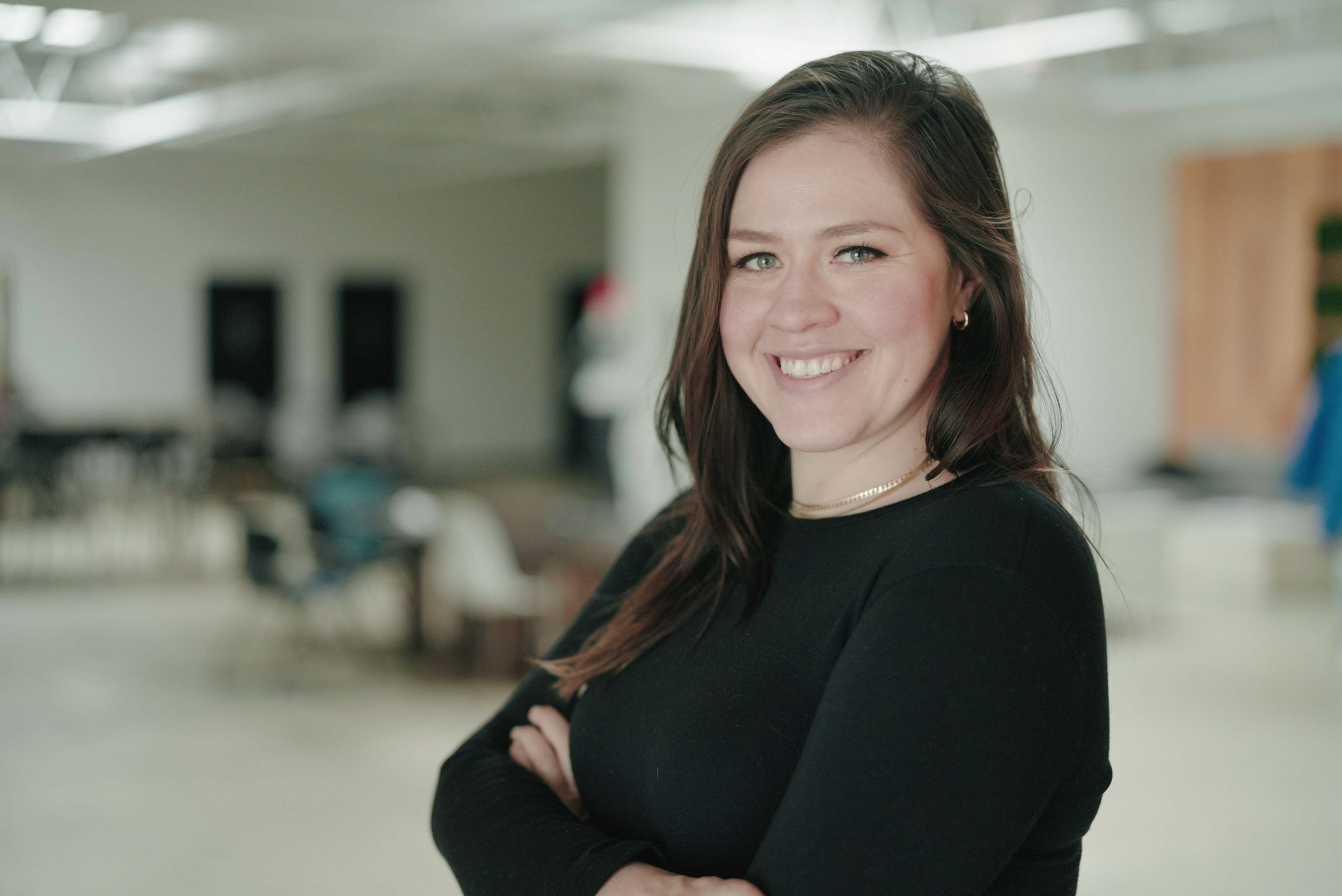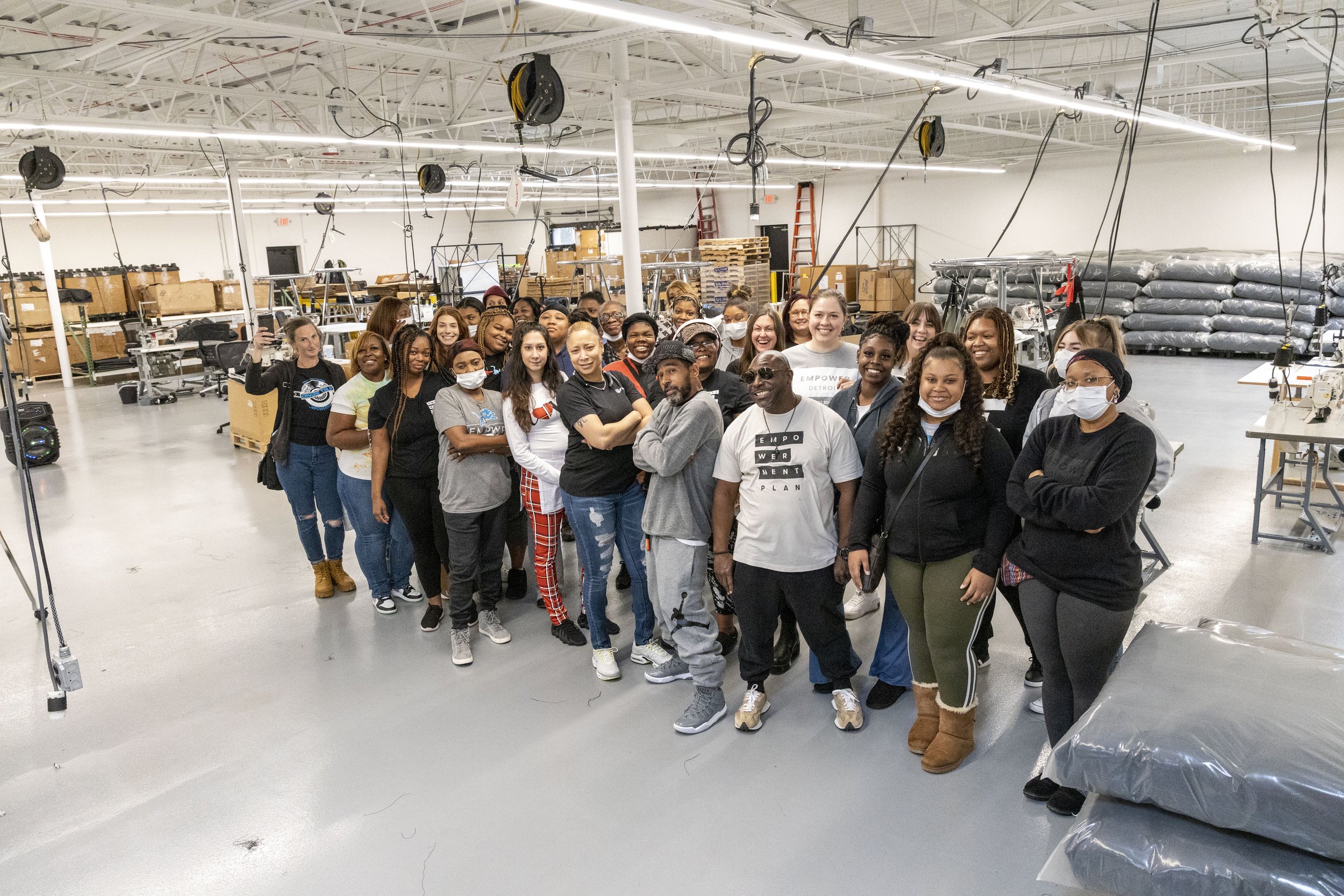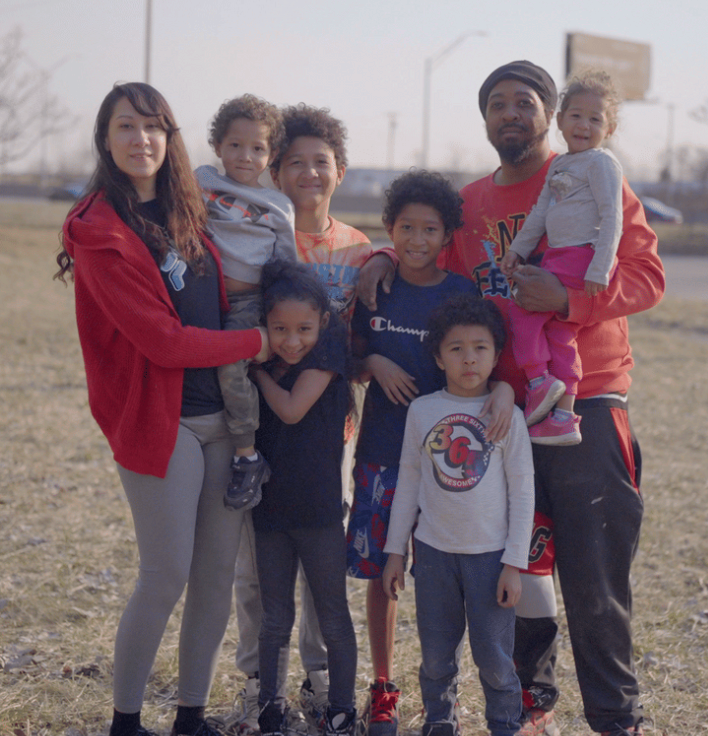Undoubtedly, life is complicated and perhaps there is no better demonstration of this than living in the richest country in human history and seeing a growing number of people without an even basic dwelling to live in.
This is how the Empowerment Plan was conceived ten years ago by Veronica Scott who was studying a degree in Fine Art and was charged to design a product as part of a project.
Veronika Scott
Having grown up with parents who had struggled and flirted with homelessness, Veronica designed a coat which could double as a sleeping bag at night. A welcome product and an idea which quickly caught on, until one day on presenting one of the coats to a homeless lady, Veronica did not hear what she might have expected.
“I don’t wanna coat. I wanna a job.”
This is the essence of the Empowerment Plan, based in Detroit but with a worldwide reach. The coats they manufacture are a focal point for bringing vulnerable people in to a communication exchange and with the intention to confront the plague of generational dysfunctionality and homelessness.
The Empowerment Plan Coat/sleeping bag.
Partnering with local shelters and hostels, the Empowerment Plan offers mainly women with children, the opportunities to receive training, paid work and much else besides.
The 10,000 coats made each year and distributed across America and to 22 countries worldwide clearly creates a positive impact of course, but it is in Detroit that the Empowerment Plan is able to sew its greatest success stories.
Empowerment is a good word for this charity because it emboldens women to become independent, to enjoy the power of self-esteem and set an example for their children and dependents.
The Brothers Trust see a similar model with the John Foundation in Hyderabad, India and we are delighted to be able to support both charities.
Detroit is a famous American city. Heralded for its car manufacturing and the birth place of Motown, but of late it is known for its social breakdown with the loss of both industries and a demise hastened by political corruption and ineptitude.
The Empowerment Plan is well positioned to confront the enormous issues facing Detroit. There are currently 37 people going through their programme which typically last two years. The women are trained by alumni of the programme, now highly skilled machinists themselves. Veronica describes The Empowerment Plan as a stepping stone employer. By creating a structure of work for people with decent pay and good conditions, the graduates are prepped for a life beyond the shelters and by doing they break the generational cycle by setting an example of order and success for their children to emulate.
Two thirds of their time is spent on production, making the coats which are set to save people’s lives. And the rest of their time is spent on pastoral pursuits: completing their education, receiving counselling for the traumas associated with domestic violence which is a common thread of people needing the Empowerment Plan and more general planning, advice and support for when they are able to complete the course and move on with their life.
The Empowerment Plan Team
The Empowerment Plan recognises that the rates of pay they can afford is often insufficient for a mum with children to put aside enough funds for all the hurdles they will encounter in finding a home to rent and in many cases to finally buy. To this end, The Empowerment Plan offers participants who have been on the programme for a qualifying period of time to apply for grants, up to a maximum of $2,500 to be used for specific purposes like down payments on a home. These grants are not loans but gifts to qualifying candidates.
A decade on from her degree, Veronica is still in-situ as the CEO of the charity she founded. I don’t know what grade she received for her project but its legacy lives on and its value is tangible and plain for all to see.
The Empowerment Plan creates employment in a once great American city, it provides warmth to people worldwide and the chance for mothers living in shelters to provide a better life for themselves and their children.
What’s not to like.






